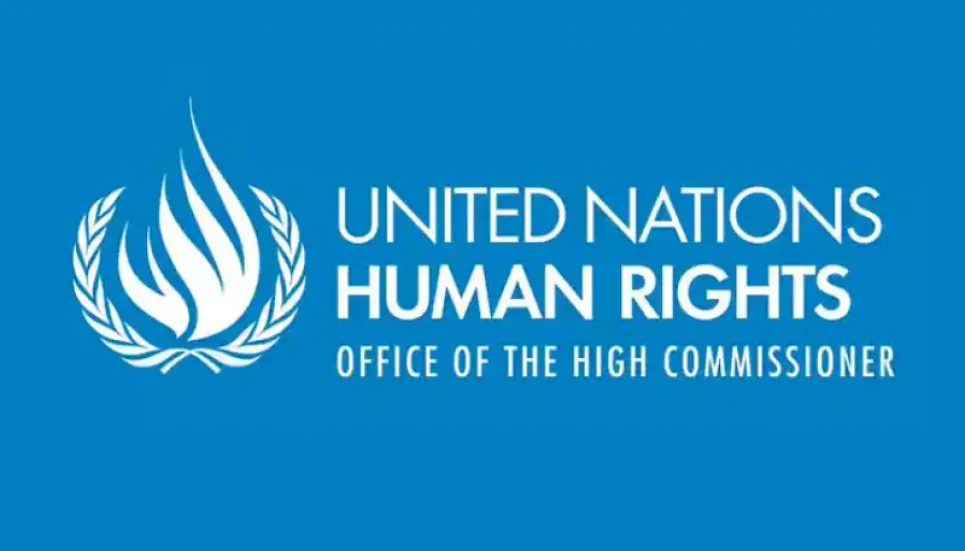
Bangladesh has expressed its displeasure to the United Nations High Commissioner for Human Rights Volker Türk over a recent letter to Prime Minister Sheikh Hasina and a press note on the country “without waiting for fuller information and facts.”
“We expect that human rights mechanisms would give themselves adequate time before jumping to conclusions without the benefit of full facts to avoid the risks of being influenced by rumors and unverified information,” according to Bangladesh’s response to Türk on November 10.
The letter seen by UNB notes that the UN rights chief’s letter, dated November 1, 2023, addressed to Prime Minister Sheikh Hasina, has been written “hastily without waiting for fuller information and facts” to emerge and without allowing sufficient time for reflection.
The letter mentioned that a press note was also “hurriedly released” from Türk’s office on the same issue without consulting Bangladesh, and without taking into consideration the facts and figures the country provided along with “horrific images and video footage taken from neutral sources.”
Guided by the obligations emanating from the constitution, the Bangladesh side said that the government has been allowing and extending necessary cooperation to all political parties including the Bangladesh Nationalist Party (BNP) to arrange assemblies, protests, processions, etc.
In this spirit the government allowed mass assemblies convened by different political parties on October 28, 2023, on the streets of Dhaka despite the declared objective of a major opposition party – BNP – to create anarchy and disconnect Dhaka from other parts of Bangladesh as a pressure tactic, reads the letter.
During its rally and strike on October 28-29, the unruly activists of BNP – “misguided” by the propaganda of its leaders – took recourse to indiscriminate street violence, arson, other forms of violent activities on the apolitical law enforcement agency members, police stations, CCTV cameras, the judiciary, media personnel, innocent civilians, state institutions, hospitals, ambulances, fire service vehicles and public properties, according to Bangladesh’s reply to Türk.
A member of the police was beaten to death while more than 100 police officers were injured, a bus worker was burnt alive, and residences of the chief justice of Bangladesh and other judges of the Supreme Court were attacked, it said.
In the following days, as the BNP spread the “campaign of arson and terror” all over Bangladesh, a few more people were killed, reads the letter.
“It is unfortunate that BNP unleashed its attacks on the on-duty media personnel. TV cameras were snatched away and at least 25 journalists were attacked, several of whom were admitted to hospitals. Bangladesh Federal Union of Journalists (BFUJ) condemned these attacks by the BNP activists,” according to Bangladesh’s response.
In the letter, Bangladesh said Türk’s office should conduct an unbiased assessment of BNP’s targeted attacks on the press impeding freedom of expression.
“Let me reassure you that our law enforcement agencies (LEAs) are well-trained to apply minimal and optimal force as they seek to prevent destruction of property or lives. Our LEAs deserve appreciation for being reasonable and restrained despite a member of the Police being mercilessly beaten to death by BNP hoodlums,” reads the letter.
The current government, as a democratically elected one, is committed to upholding the rule of law and ensuring peace and security, it said.
Every single arrest made following the incident of October 28, was based on specific allegations against the persons concerned, Bangladesh said.
“There has been no arbitrary arrest and detention, and we assure them access to full legal recourse as allowed under domestic laws,” the letter said.
In its reply, Bangladesh also mentioned that BNP Chairperson Khaleda Zia was convicted on corruption charges in two cases while a few other cases are ongoing – all of which were filed during the 2007-08 caretaker administration.
Considering her health condition, based on the application of her family members, Prime Minister Sheikh Hasina suspended her sentence under legal provision.
“Begum Khaleda Zia was offered a release for a period of six months on conditions of (a) taking treatment in Bangladesh and (b) not leaving the country. She accepted the conditions under which she was released on 25 March 2020 and her release tenure was extended several times,” said the government of Bangladesh.
Bangladesh in its reply mentioned that she has been receiving treatment of the highest standard at the Evercare Hospital, one of the best hospitals in Bangladesh, as per her choice.
Recently, her family members and the leadership of BNP sought permission from the government to bring specialist doctors from the USA for her treatment. The government accorded its permission.
Bangladesh appreciated the engagement of Türk’s office with the government of Bangladesh on the recent developments.
“As Bangladesh is constructively and consistently engaged with the UN mechanisms in promoting and protecting human rights, we expect our steadfast commitment would be reciprocated with the spirit of cooperation and proportionality,” reads the letter to the UN rights chief.